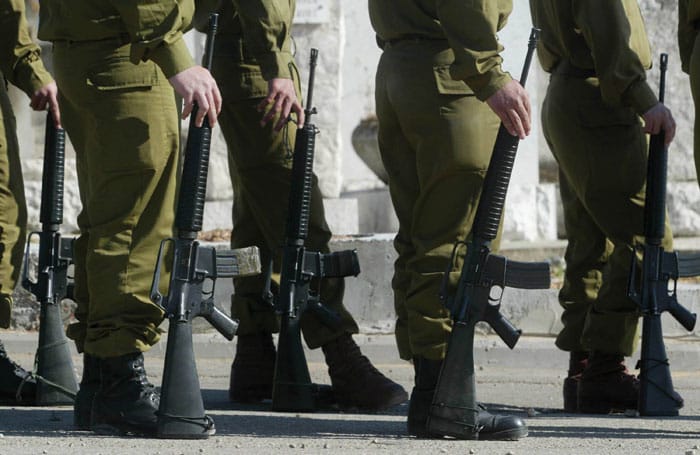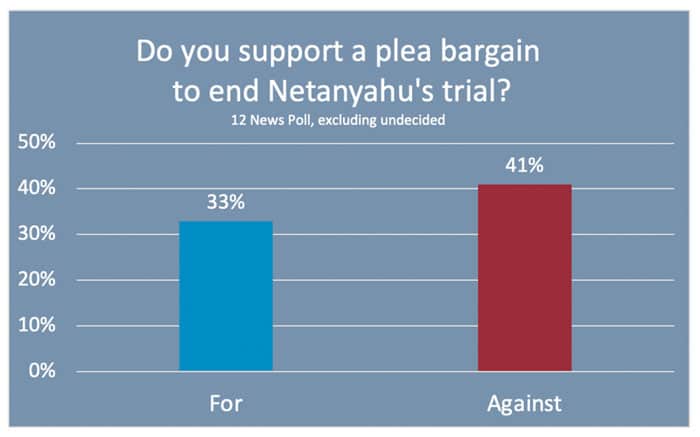 Uriel Sinai/Getty Images
Uriel Sinai/Getty Images On Monday, an Israeli minister likened the chiefs of Israel’s security forces to the Wagner group. She did it, because they “issued a joint statement about Jewish nationalist terrorism.” Minister Orit Struck asked: “Who do you think you are? The Wagner Group?,” referring to the Russian mercenaries. “Who are you to issue such a message under the government’s nose?”
Struck got angry twice. Once because the announcement came out “under the nose” of the government, and once because it had used the term “nationalist terrorism.” A little background: Following a deadly attack in which four Jews were killed last week, groups of settlers set fire to vehicles and homes and ripped up books at a mosque during rampages through several Palestinian towns. This is what Israel Defense Forces Chief Lt. Gen. Herzi Halevi, Shin Bet head Ronen Bar, and Police Commissioner Kobi Shabtai called “Jewish terrorism” in a joint statement.
Is it Jewish terrorism? I think it is, but that’s not the point I’d like to discuss here. What is interesting is a minister’s decision to direct such harsh criticism at what is supposedly the most sacred of Israel’s institutions — its security establishment. And it is interesting because it’s not the first time such a thing happened, but it is another brick in the cracking wall of support for these institutions.
There are leaders on the political right who believe that in a battle of image between them and the heads of the military, they can win; who believe that the popularity of the IDF doesn’t make such a blunt clash politically damaging for them.
In recent weeks there has been harsh criticism in right-wing circles of the Minister of Defense, the IDF Chief of Staff, the chief of Central Command, and the Commander of the Benjamin Brigade. So there are leaders on the political right who believe that in a battle of image between them and the heads of the military, they can win. There are leaders who believe that the popularity of the IDF doesn’t make such a blunt clash politically damaging for them.
This is not an entirely new phenomenon. We witnessed several times, including in the 2016 arrest and trial of Elor Azaria, a soldier convicted of manslaughter for killing a Palestinian attacker after he was already neutralized. In almost all cases the same pattern occurred: The IDF found itself insisting on enforcing its values, as the commanders understand them, in the face of a wave of criticism from those who treat these values with suspicion or contempt. In Azaria’s case, the critics argued that the IDF cared for a dead terrorist more than it did for its own soldier. In the current case of the riots, the critics argue that the IDF is more concerned with settlers’ actions than with the actions – killings – that prompted the riots.
When political leaders feel clashing with the heads of the security establishment is politically safe, or even beneficial, it means that they recognize vulnerability. Minister Struck assumes that she can hit the Chief of Staff and get away with it. She assumes the public (especially her supporters), will not see her attack as out of line. True, the IDF was and still is a body that enjoys a broad public support. But the politicians’ behavior demonstrates that times have changed. IDF immunity is not what it used to be.
Why? Three things happened:
The critics were able to create a mental separation between “soldiers,” with whom the people sympathize, and “commanders,” with whom the people — and especially some supporters of the hard right — sympathize less.
They were also able to alter the image of the army chiefs, and convince supporters that the chiefs’ values do not align with the values of the right. The fact that more than a few IDF leaders ended up as center-left politicians was very helpful to this process.
And then, there is the general decline in the status of all national institutions. Especially on the right, there is a growing suspicion of everything that reeks of “establishment.” The establishment is called “hegemonic,” described as a “Deep State,” or tagged as empowering the “elites.”
In more than one way, what is happening to the IDF is what happened to the Supreme Court. Yes, it is a slower and more measured process (partly because Supreme Court justices were less careful in handling their power). And yet, these are similarities that one can’t deny. Rightist critics say that IDF commanders make decisions without authority (under the nose of the cabinet); that they make decisions that hinder the government from realizing the will of the people; that these are decisions that express the ideological agenda of a handful of a non-elected professional. And what is the supposed solution? Replace them with our own people. And if you want to know what this means, just look at the current government: impressive professionalism is not it’s strong suit.
Something I wrote in Hebrew
The coalition decided to one-sidedly pass a bill that would outlaw the “reasonableness test” in judicial review of government or ministerial decisions. Is it such a big deal? Here’s what I wrote:
The coalition members decided it was worth risking real damage to make a marginal move. The opposition decided that it was worth risking real damage to prevent a marginal move. If one side were to say something along the lines of “the truth is, the whole thing with the reasonableness test is a bit silly, doesn’t matter much”; if the coalition were to say, “leave it, we’ll give it up”; if the opposition were to say, “leave it, we’ll let them have this” – in this case, it would be possible to ignore the cancellation of the reasonableness test. But since neither side will agree to drop the issue, there will be a great war.
A week’s numbers
In a dramatic week of the ongoing Netanyahu corruption trial, the public is still unconvinced that a plea bargain would be the easiest, fastest and best way out of a political-criminal mess.

A reader’s response:
Jill Allenberg asks: “How can we support Israel when settlers in the West Bank behave like our worst enemies?” Answer: I understand why you’d feel alienated by such reprehensible conduct. Just remember two things: 1. There’s context – the settlers are also afraid for their own lives. 2. You would not want to be judged by the actions of extremists in your own country.
Shmuel Rosner is senior political editor. For more analysis of Israeli and international politics, visit Rosner’s Domain at jewishjournal.com/rosnersdomain.























 More news and opinions than at a Shabbat dinner, right in your inbox.
More news and opinions than at a Shabbat dinner, right in your inbox.